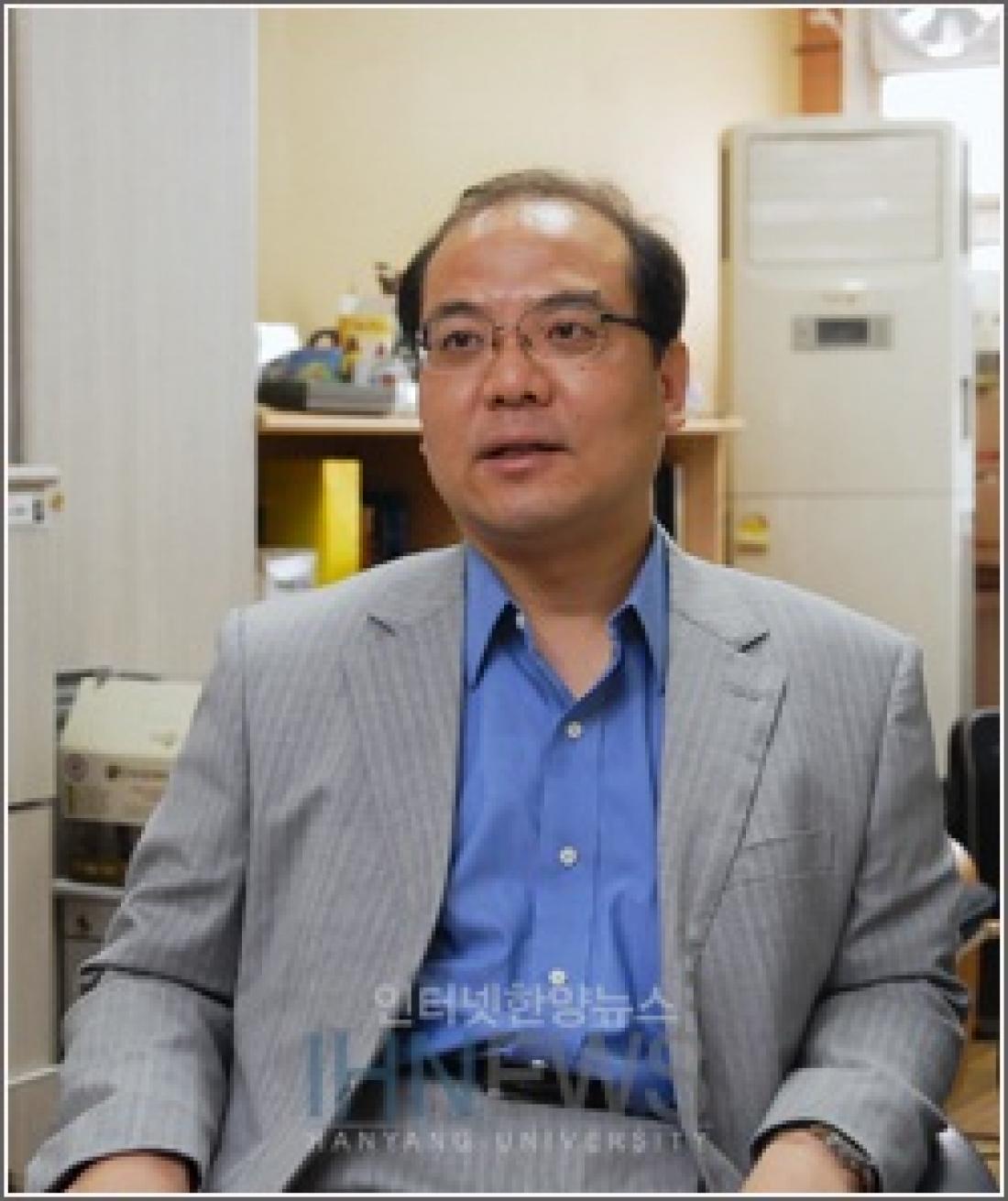Younkyoo Kim, Head of the Institute for Energy Governance and Security.
In a special report released by the International Energy Agency (IEA) last May, the Agency said they anticipate a time when unconventional gas that includes shale gas, tight gas, and coaled methane gas, will be so well developed that a 'Golden Age of Gas' would begin on an international level. In fact, many experts have also stated their belief that shale gas might become a game changer for the international energy economy in the near future.
With so much attention being placed on unconventional gas like shale gas, Younkyoo Kim (Professor, International Studies) was recently invited to attend the Energy China International Shale Gas Forum as a consultant. He established the Institute for Energy Governance and Security, Korea (EGS Korea) to conduct research on energy, international governance, and technology based on converged education.
Kim majored in International Relations and Political Science, and he has been studying Northeast Asia, particularly Russia, and energy for more than 20 years. He is the author and co-author of over 30 scholarly articles and monographs, and the author or editor of 4 books, including The Arctic: A New Issue on Asia`s Security Agenda (2011), Recent Trends in Russian Energy Policy In Asia (2011), and Russia and the Six-Party Process in Korea (2010).
EGS Korea was established as a means to better understand the notion of “global energy governance and energy security” and the role of Asia. The Institutes aim is to conduct dynamic research on today’s energy issues while bringing together groups of energy experts from major countries in the Asia-Pacific area (Korea, China, Japan, Singapore, and Australia), and the United States with an interest in developing capabilities to better engage countries in the Asia-Pacific region. As a result, global energy governance, energy security, and region-specific issues are all significant to the Asia-Pacific region, and should be actively explored and discussed.
Kim said, "About twenty years ago, it was all about globalization. As the technology developed and people become more connected through different ways, the importance of globalization was stressed everywhere." He added, "In fact, most domestic policies and diplomatic plans were developed on the basis of globalization. But now, the keywords are climate change, energy, and/or resources. The paradigm of climate change is shifting and the policies of each nation change according to those transitions internationally."
Kim stressed the importance of convergence between social science and engineering saying, “If you do not have enough knowledge about energy technology, it is very difficult to explain the related international policies these days. Also, companies are looking for experts who possess expertise in both energy technology and social policies. Knowing both liberal arts and engineering together will be a major asset in any field.”
EGS Korea received 5 billion KRW worth of funding from the government. Every year, the Ministry of Education, Science and Technology chooses schools and institutions that have interesting and solid research in social science. “There were 43 agendas chosen in total, and 2 of them are from HYU. Because there is not enough research on shale gas and energy technology, we were chosen by the government,” he said.
EGS Korea has mainly two ultimate goals for its research on unconventional gas. “This year, we opened up an office in New York to thoroughly study shale gas in North America. Also, we have been studying natural gases in Northeast Asia and their development. Our goal is to cooperate with both regions and to study how these gases can bring about positive impacts in Northeast Asia,” Kim said.
He also left an important message to students. “Most companies turn their eyes onto energy and sustainable resources and invest heavily on them. Whatever your major is, your interest and knowledge on energy will give you a huge advantage.”
He added, “Our economy has been focused on quantitative development so far. However, if we fail to figure out how to use energy and power more efficiently, our economic development will be very slow and sluggish. We need qualitative development now.”
EGS Korea is holding a seminar on the first of November at the JW Marriott Hotel in Seoul. Experts from China and United States have been invited to discuss “China’s development on shale gas and its outlook”.
Article written by: Jungho Choi ([email protected](
Photo by Hyeonjung Kim



